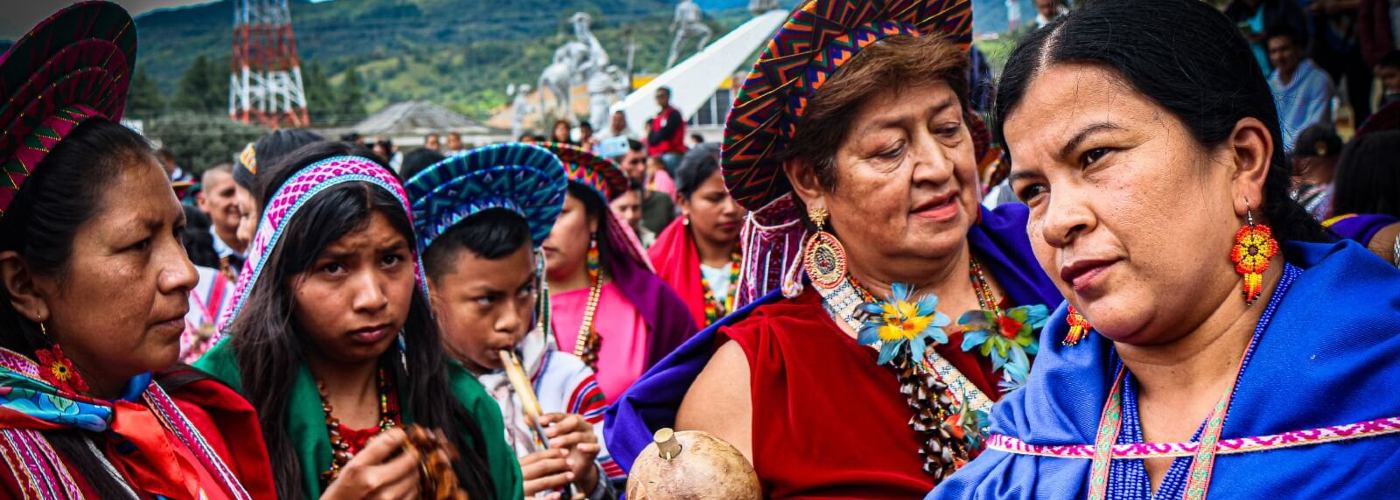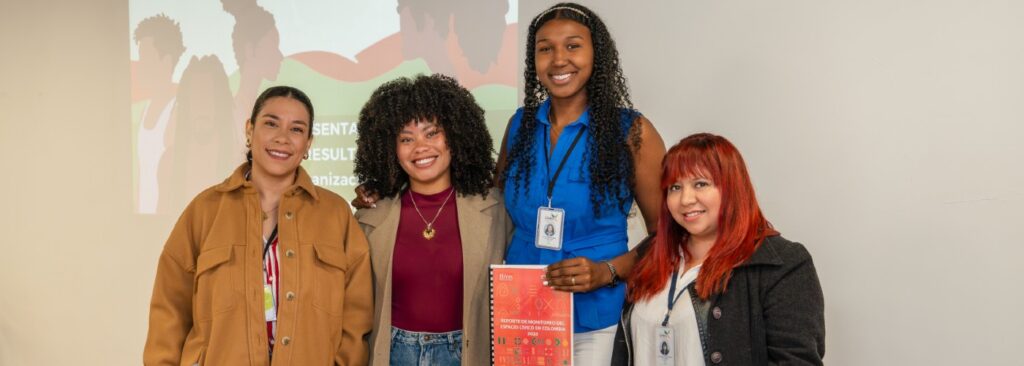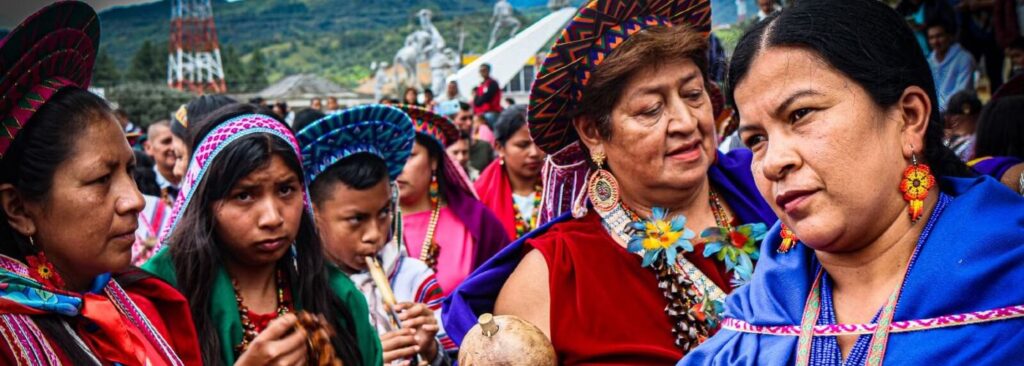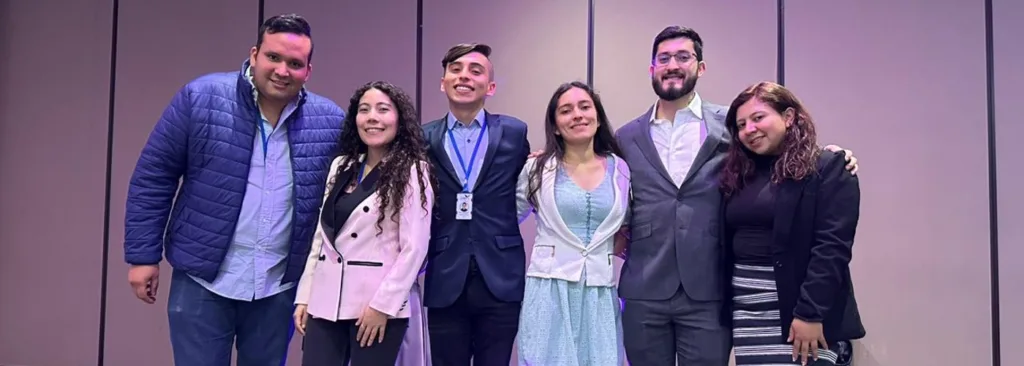Hivos has a new project in Colombia that is working with Indigenous communities to strategically use legislative means to fight for their land and rights, and ensure endangered forests are protected.
On the frontlines
Colombia is home to some of the world’s most unique, biodiverse regions. Their protection lies in the hands of Indigenous communities who manage more than 30 million hectares of forest. But these guardians are on the frontlines of multiple rival interests. While they are attacked by illegal enterprises, they are also systematically excluded from political processes that could shield them. Our new project, Living Forests, Strong Communities, is seizing a special political moment to change this and fight together for climate justice.
The situation in Colombia
Colombia is facing several crises at once. Illegal logging, land grabbing, and coca cultivation are causing deforestation in sensitive areas. This not only leads to biodiversity loss but also means that the people who depend on the forest are facing ever more violence and intimidation. According to Front Line Defenders, Colombia is the deadliest country for environmental defenders. The armed conflict, which has lasted for decades, has left deep scars. Marginalized groups in particular are burdened by a weak economy and an unstable political climate. This makes the areas where Indigenous people live even more vulnerable to illegal mining and the activities of armed gangs.
A unique opportunity
Fortunately, we have a unique opportunity to initiate change. Colombia, like many countries in Latin America and the Caribbean, recently ratified the Escazú Agreement. This regional agreement obliges countries to take nature conservation seriously. For example, they must guarantee public participation in decision-making processes related to environmental legislation. Legal recourse must also be available for Indigenous communities, amongst others, who wish to sue companies or (local) governments if illegal activities are observed on their land.
But as with all treaties, simply signing them is pointless. Only when the treaty is translated into robust legislation can it become a significant tool for Indigenous communities in the fight for their land and their rights. And that is precisely what we are working on.
Our plans
Together with local organizations and Indigenous communities, we have developed strategies to ensure the proper implementation of the Escazú Agreement.
This begins by increasing Indigenous communities’ knowledge of the agreement and its potential impact on forest protection. We then work together to develop legislative proposals that—in line with Escazú—will combat illegal deforestation and safeguard the territorial rights of Indigenous peoples.
We also provide communities with digital tools to monitor their lands, letting them document evidence of destruction. This evidence will help them advocate for sound policies and launch strategic legal suits. Finally, we will work with governments to ensure they improve their decision-making processes.
We are confident that these strategic actions will make sure the Escazú Agreement is properly incorporated into national policy. Indigenous communities will then be able to benefit from this for years to come, which will usher in real, long-term change.
How the project began
We developed Living Forests, Strong Communities thanks to the support of our donor, the Swedish Postcode Lottery Foundation. The project likewise builds on the successes we previously achieved with the All Eyes on the Amazon program. This adds a new chapter to our years of experience working with courageous Indigenous communities who are standing up for their rights and protecting their unique lands for all of us.




